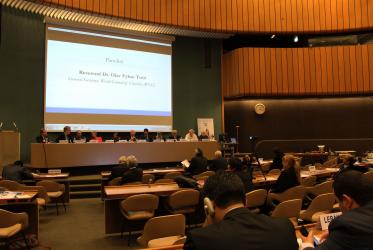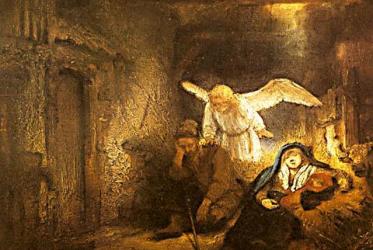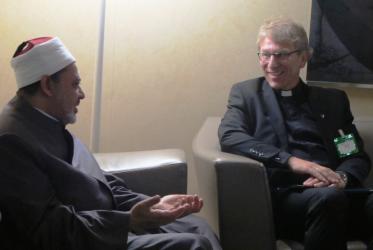Displaying 121 - 140 of 221
Islam and Christianity: finding the common ground
16 March 2017
An interview with the Ethiopian Patriarch, Abune Matthias
14 February 2017
Patriarch Matthias: “Peace is the message of every day”
10 February 2017
Le patriarche Matthias: «La paix, un leitmotiv quotidien»
10 February 2017
Churches in Norway and Pakistan break new ecumenical ground
26 January 2017
Strong bridges needed more than ever
21 December 2016
Second Bible study on stateless persons available for Advent use
08 December 2016
Grand Imam calls for collaboration against violence and poverty
06 October 2016
Dialogue flourishes between WCC, Muslim Council of Elders
30 September 2016
Religious leaders of many faiths talk peace in Assisi
21 September 2016
À Assise, les responsables religieux parlent de paix
21 September 2016








